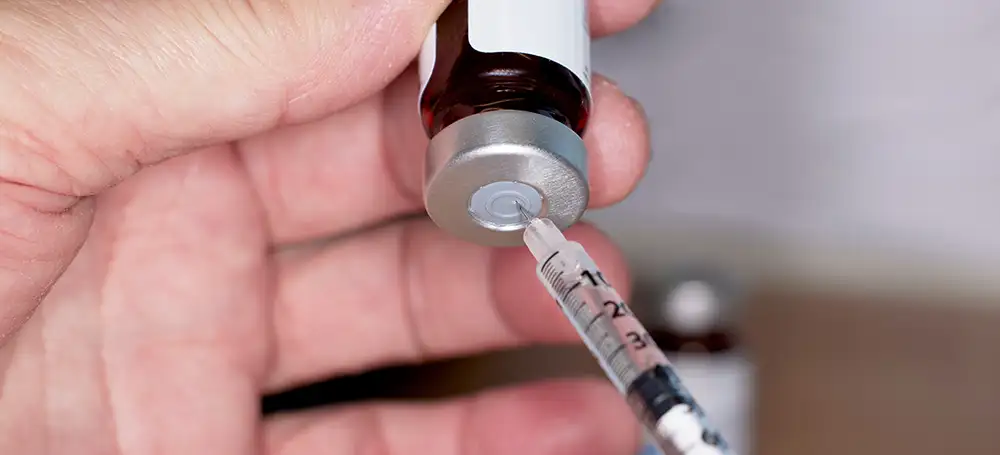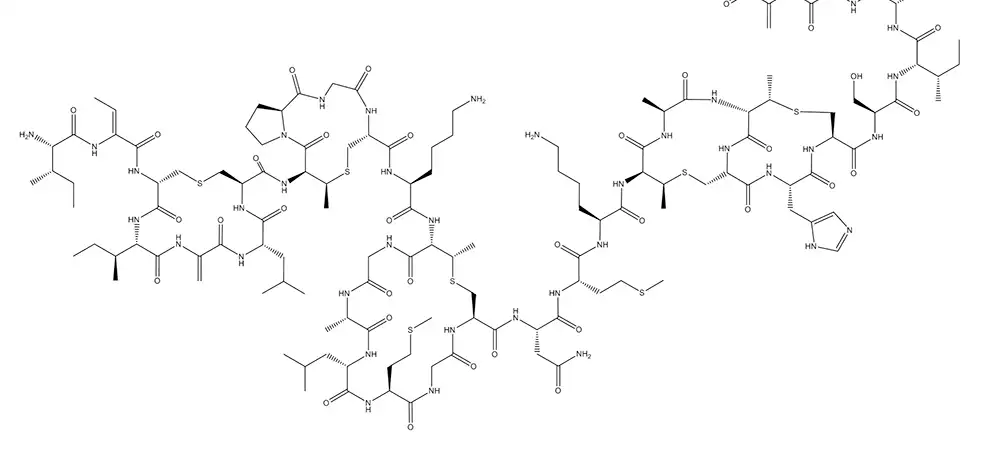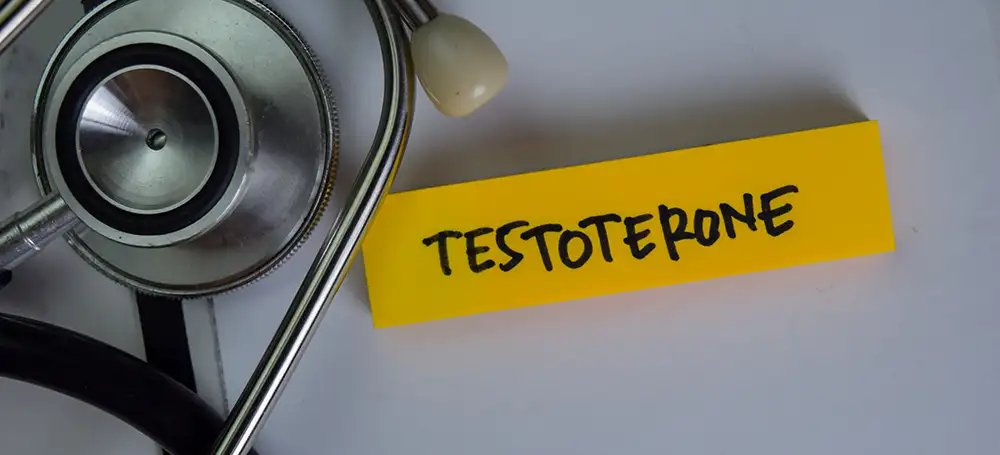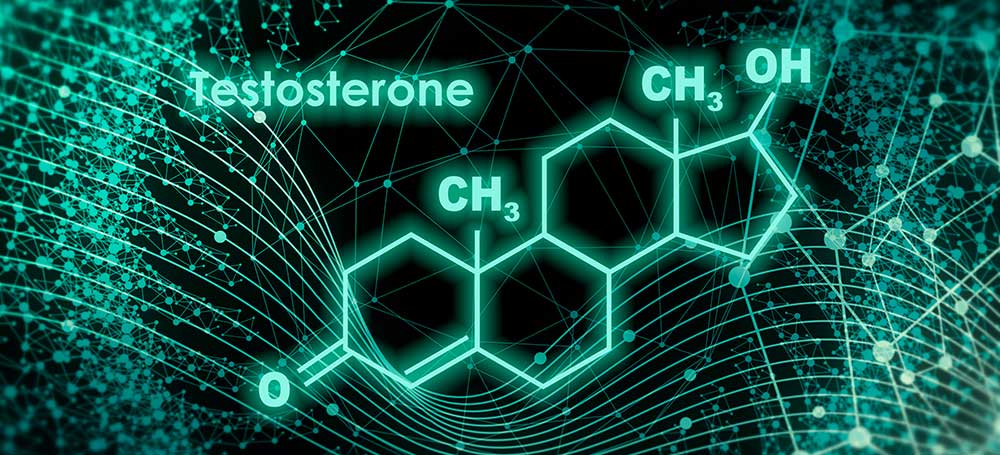Testosterone, the male sex hormone, is typically linked to sex drive. However, testosterone has several other key purposes as well. Some of the most essential functions of this hormone include enhancing bone and muscle health, boosting hair growth, increasing sperm production, aiding in the development of muscle mass, managing the distribution of body fat and fueling the production of sperm and red blood cells.
Low testosterone levels can affect numerous areas of your health and well-being. As your testosterone begins to fall, you may start to notice a certain set of symptoms taking place throughout your body, such as a reduced sex drive, increased body fat, a lack of energy, hair loss and lower muscle mass. It’s important to be aware of the signs of a testosterone deficiency so you can remedy the issue properly.
There might be several causes of a decline in hormone levels, from chronic illnesses to old age. While hormone replacement therapy can be a highly effective way to raise your testosterone levels, you can further support your hormone health by making a few changes to your diet. These simple changes can empower you to feel confident in your own skin again.
Here are 7 healthy foods that play a vital role in boosting testosterone naturally.
- Tuna
Vitamin D is essential to building testosterone. Tuna, a nutritious food staple that is rich in vitamin D, supports numerous areas of your overall health and well-being. Not only is tuna low in calories, but it also helps support proper heart functioning and meets the protein needs of the average man.
Whether you prefer fresh tuna or canned tuna, either option can provide the numerous health benefits that you’re looking for. If you don’t particularly enjoy the taste of tuna, you can opt for salmon or sardines instead, which are known to provide the same testosterone boost. Regardless of which type of fish you ultimately choose, be sure to limit your intake of other fish sources to two to three times a week.
- Egg Yolks
While egg yolks are another great source of vitamin D, they are packed with a host of other nutrients as well. This is a major benefit not only for men who have low testosterone levels, but also for individuals who are looking to maintain a healthy lifestyle. In recent years, people have started passing on egg yolks in favor of egg whites. However, the nutritional value of the former is significantly higher than the latter.
Provided you don’t have any cholesterol problems, it’s generally recommended to stick to egg yolks rather than egg whites. There’s a wide range of health benefits associated with egg yolks, such as a lower risk of gastrointestinal problems, reduced blood pressure, an enhanced immune system and protection against vision problems.
- Low-Fat or Skim Milk
Your days of drinking milk shouldn’t end once you become an adult. This nutrient-packed drink offers a slew of benefits to men with low testosterone, both hormone-related and otherwise. Key advantages of milk include building stronger bones, raising your protein levels, promoting healthier teeth, boosting your calcium intake and fortifying your body with vitamin D.
The type of milk that you drink is also worth considering. Low-fat milk in particular can make a meaningful difference in your testosterone levels. By strengthening your body with vitamin D, low-fat milk acts as a natural, testosterone-boosting food. During your next trip to the supermarket, keep an eye out for low-fat or skim milk. Bonus points if it’s been fortified with vitamin D. Generally speaking, you should avoid consuming saturated fat in any type of form.
- Fortified Cereals
You need something to go along with your milk, so why not switch to cereal for breakfast? If you already whip up a bowl of cereal every morning, we have good news for you. Fortified cereal in particular can have a positive impact on your testosterone levels. More specifically, choosing cereals that are fortified with zinc or vitamin D can enhance your hormone health and overall well-being.
However, it’s important to avoid making common mistakes when shopping for cereal. Steer clear of brands that manufacture cereals with high sugar content. Sugary foods can undermine their nutritional benefits, which will harm your health in the long run. Once you’ve selected your preferred cereal, pair it with low-fat or skim milk, and you’ll have a nutritious, tasty breakfast to jumpstart your day.
- Cruciferous Vegetables
There’s no denying that cruciferous vegetables can have many positive effects on your health. Cruciferous vegetables offer two main benefits for men with a testosterone deficiency—not only do they help to raise testosterone levels, but they also play a vital part in reducing levels of estrogen. This leads to more balanced hormones overall.
In addition, many cruciferous vegetables are rich in indole-3 carbinol, a compound that can be converted into a safer form of estrogen. This way, the full transformation in the male body will take place more systematically with regards to increasing testosterone. Stocking up on these veggies can allow you to gain more muscle mass, shed unwanted pounds, improve your energy levels and enhance your sex drive.
There are numerous types of cruciferous vegetables that you can incorporate into your everyday diet. Some of the most popular varieties include broccoli, turnips, brussels sprouts, cauliflower, cabbage and kale.
- Pomegranate
This beautiful, vibrant citrus fruit packs a ton of flavor and is an easy way to raise your testosterone levels. According to a study on the health benefits of pomegranate, regularly consuming this fruit for 14 days can increase your testosterone levels by up to 24 percent.
In addition to enhancing your hormone levels, you’ll be doing your body a big favor by fueling it with essential nutrients. Pomegranates are known to contain a healthy dose of antioxidants, which are crucial to various areas of male health. Antioxidants can reduce your risk of heart disease, improve your eye health and even protect against cancer.
- Oysters
Oysters are rich in two key nutrients: protein and zinc. Protein is essential to building bones and enhancing muscle mass, which are both compromised by low levels of testosterone. There are a number of non-hormonal benefits of protein as well, such as regulating digestion, boosting metabolism, accelerating the fat-burning process, lowering blood pressure and maintaining weight loss.
Zinc is another important nutrient that has a direct impact on testosterone levels. Eating foods with high levels of zinc, such as oysters, helps to support your immune system, metabolism and sense of taste and smell. If you’re struggling with a testosterone deficiency, eating oysters can increase your hormone levels in a safe, natural way as well.
Why Testosterone Levels Matter
Now that you know which foods you should add to your diet to boost your testosterone levels, it’s worth understanding the role of this hormone in the male body. This will allow you to get the most out of hormone replacement therapy when the time comes.
Males typically begin developing testosterone as early as seven weeks after conception. This means that a baby boy has already started to produce testosterone while he’s still in the womb. Once a boy reaches puberty, his levels of testosterone will begin to rise significantly and peak later on during the teen years. In addition, it’s normal for male hormone levels to begin steadily declining after a man hits the age of 30.
The levels of testosterone in your body affect various areas of your health, such as your reproductive system and organs. This hormone is also known to impact muscle mass, bone density, mood, and even your specific types of behaviors.
Testosterone plays a central role in fully developing the penis and deepening a boy’s voice during puberty. It can also help a growing man develop body hair, as well as remove it as he enters old age. Finally, research shows that normal testosterone levels contribute to increasing or decreasing a man’s sex drive and accelerating his sperm production.
The endocrine systems, the central nervous system and the circulatory system are other important areas of the male body that are heavily dependent on testosterone levels. To effectively produce testosterone, the brain sends signals to the pituitary gland, which are sent back to the brain in return. These signals are then communicated to a man’s testes, which begin to produce testosterone.
Balance is crucial in this process. If a man’s body begins producing too much testosterone, the brain will alert the pituitary gland so that it can slow down production. As a result, scientists and researchers are led to believe that testosterone may influence mood elevation and control. However, more research is needed to confirm this phenomenon.
A healthy balance of estrogen and testosterone isn’t only important for men. Women also need appropriate levels of each hormone to maintain properly functioning ovaries and to ensure optimal brain health.
How Hormone Replacement Therapy Can Help
While eating the right foods can make a significant difference in your testosterone levels, relying solely on diet is an ineffective treatment for most men. Hormone replacement therapy can benefit your overall health in a number of meaningful ways.
First, it’s helpful to know what low testosterone looks like. In adolescents, this may manifest itself as an abnormal puberty cycle. Examples of this include less facial hair, smaller genitals, reduced body hair and a higher-pitched voice. In older men, low testosterone can cause sleep deprivation, a reduced sex drive, baldness, hot flashes, weight gain, decreased muscle mass and a loss of bone density.
Moreover, the causes of low hormone levels can be both direct and indirect. An example of a direct cause is testicular failure, which usually results from a genetic or metabolic disorder. Other direct causes of a testosterone deficiency include autoimmune diseases and any form of testicular trauma.
There is also a variety of indirect causes that may be connected to abnormally low testosterone. Some of these causes include excessive exercise, malnutrition, pituitary hormone imbalances and synthetic steroid use.
Live a Better Life By Enhancing Your Hormone Levels
If you’re concerned that your hormone levels are lower than normal, it’s important to talk to a doctor about your options. Even a simple yearly checkup can help you monitor your testosterone levels and give your doctor the chance to detect a notable increase or decrease. In this case, your physician may suggest certain preventative treatment methods, such as hormone replacement therapy.
Hormone replacement therapy has improved the lives of countless men with hormone imbalances. Because testosterone is such an integral part of the male body, increasing your levels of this hormone can trigger a chain reaction of benefits for almost every area of your health.
To learn more about whether hormone replacement therapy is right for you or to schedule an appointment, contact Boston Vitality today. We’re happy to talk and help you make the best decision for your needs.












